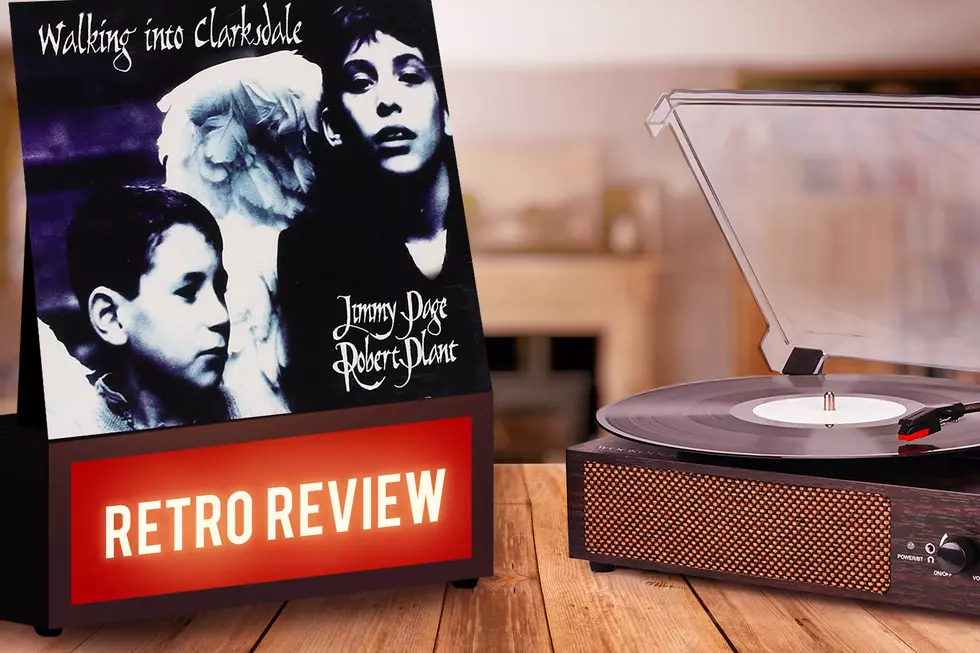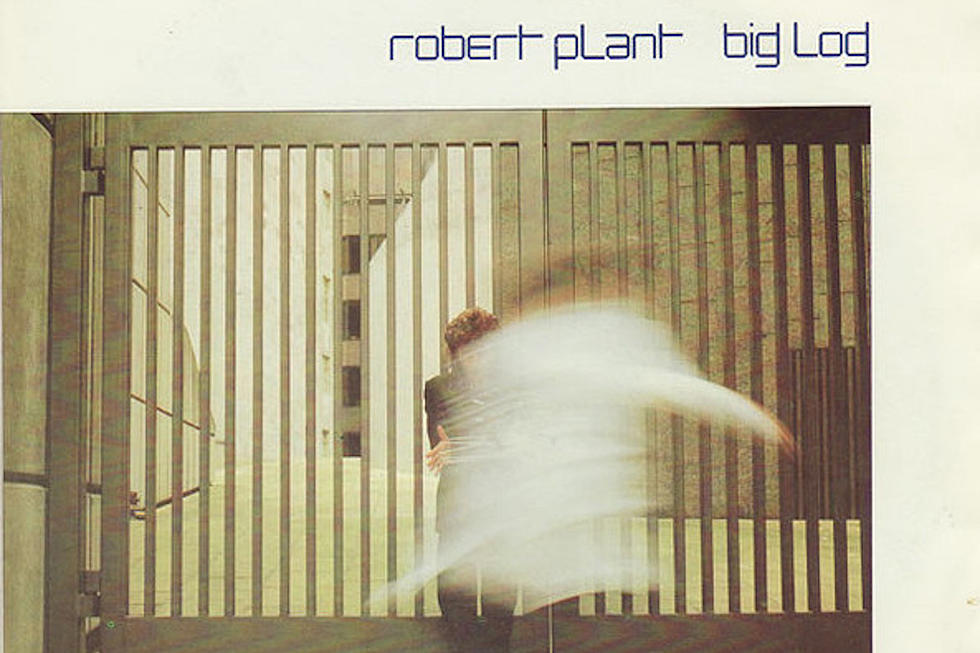
Jimmy Page and Robert Plant, ‘Walking Into Clarksdale': Retro Album Review
Walking Into Clarksdale is the album Led Zeppelin fans have resigned themselves to never getting. The group put a definitive cap on its career almost immediately after John Bonham died in 1980, and the surviving three members - Jimmy Page, Robert Plant, John Paul Jones - regrouped only for dubiously special performances at Live Aid in 1985 and the Atlantic Records' 40th-anniversary concert in 1988. There was certainly a clamor for more, and Plant and Page in particular circled the idea by guesting on each other's solo albums (Page on Plant's Now and Zen, Plant on Page's Outrider). Those collaborations showed they could still play nice together, even if they weren't together.
The tide changed with 1994's No Quarter: Jimmy Page & Robert Plant Unledded, an MTV special turned reunion (sans Jones, acrimoniously) that reworked a batch of Zep favorites and tantalized with four songs. "Never" became "What if?" Four years later the Page-Plant duo answers the latter question to frustrating if occasionally pleasing effect. Walking Into Clarksdale isn't a Led Zeppelin album - couldn't be, for so many reasons both obvious and hidden in the complex web that is the Page-Plant relationship. What it does is return the two to a more basic rock band format, a quartet (with occasional embellishment) that seeks to strip back the orchestrated ambitions of No Quarter and bring Page and Plant back to their comfort zone. It's time to get the real Led out again, or so it seems, for the first time since In Through the Out Door in 1979.
But anyone who's paid attention during the interim, particularly to Plant's work, knows we aren't bustling in the hedgerow anymore. The singer has forayed into all sorts of sonic terrain, embracing influences and ambiences that separate him from the Golden God of yore. Page has made his moves, too, more so on Outrider and his soundtrack work than with the Firm, his two-album team-up with Paul Rodgers. Growth and evolution aren't just cliches for these two by the late '90s.
Page and Plant are also aware of what's going on around them and want to be relevant to the scene that has sprouted during the decade leading into Clarksdale. That leads them to bring in Steve Albini - an alt-rock kingpin whose hip cred includes work with Pixies, Nirvana, PJ Harvey and his bands Big Black and Shellac - to engineer the sessions and put the duo on a contemporaneous sonic footing. That much is achieved: Albini brings a particularly jagged, cheap amp tone to Page's guitar and a dry, clean spaciousness to the band ambience that offers a different kind of punch than we got from the Zeppelin releases of the '70s - more of a jab than a haymaker, and appropriate for the pristine CD era. It certainly feels fresh and even crisp, though it takes a minute to get used to if Houses of the Holy or Physical Graffiti are more your meter.
Listen to Jimmy Page and Robert Plant's 'Shining in the Light'
Clarksdale, which was released on April 21, 1998, begins by walking out of Led Zeppelin III territory, with the shimmering acoustic strum of "Standing in the Light," embellished by strings and a dancing bass line before Page cranks up the electrics for the chorus. It's a joyous celebration of love, more buoyant than In Through the Out Door's "All My Love" and a hopeful start for this new chapter of Page and Plant's association. Standouts include "Most High," a swaggering, Moroccan-flavored rock raga that updates "Kashmir" with help from Tim Whelan of Britain's Transglobal Underground on keyboards. More polarizing is "Please Read the Letter," an abrasive and electrified front-porch Hill Country blues with Plant's harmonies echoing back from the holler.
That balance of ethereal roots and modern rock is Walking Into Clarksdale's crossroads, including the tempo-shifting title track, the anthemic "House of Love" and the blues and surf collision of "Burning Up." The two longest tracks, each running more than six minutes, are evocative: "When the World Was Young" is a shotgun wedding of the Middle East and desolate Texas with lots of air, space and vibe, while "Blue Train" sounds like it was targeted for U2's The Joshua Tree until it bursts into Page's late-song fusillade. Their attempts to recapture rock 'n' roll Valhalla on "Upon a Golden Horse" and the closing "Sons of Freedom" do kick up some dust but won't replace "Whole Lotta Love" or "Rock and Roll" on your playlists.
And that's the leveling issue here: Plant and Page want it both ways on Clarksdale - to be embraced because of their past but not to relive it, which is admirable but challenging and an eternal struggle for any musician entering "revered veteran" status.
Led Zeppelin Solo Albums Ranked
More From The Moose 94.7 FM










